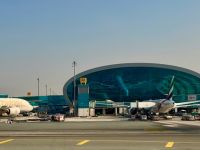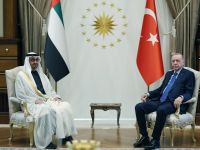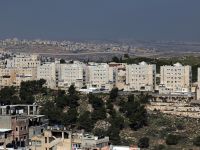Riyad Seif, a prominent Damascus industrialist and a member of the Syrian People's Assembly, is one of the more fascinating figures in present-day Syria. Balancing his public role as a parliamentarian with his private role as a textile factory owner and businessman, Seif believes that parliamentary immunity as well as his financial security allow him to say things he could not have otherwise. Accordingly, since taking his seat as an independent MP in 1994, he has made his opinion known more decisively and frequently than he did in the business arena, where he has been active since 1963.
Seif believes that Syria’s “real problem” does not involve foreign policy issues, but rather the economic challenges expected to follow a peace settlement in the region. At this crossroads "revitalizing, then reforming the economy” is necessary, he says.
Renowned for his pungent criticism of government incompetence, Seif vigorously campaigns for more accountability on how the government spends its money. He fears the Syrians “do not speak the language of the New World economy”.
Nevertheless, Seif may recently be hearing encouraging rhetoric from President Hafez al-Assad. In his inaugural speech to the People's Assembly in March 1999, Assad emphasized the role of economic reform in the process of modernizing the state. He spoke of "liberating companies from their administrative and financial bonds". He also called for "bearing responsibility and holding negligent officials to account." Furthermore, as part of his effort to establish his son’s standing as his successor, Assad has emphasized Bashar’s image as epitomizing the fight against corruption.
Despite the "genuine public affection for Assad and his son,” Seif is critical about what many in Damascus predict will soon become an orchestrated show of support for Bashar. He says the display will be seen as "silly and old-fashioned," like the weeks of staged tributes to celebrate the recent re-election of the Syrian president.
On the other hand, Seif is most complimentary of Assad’s first major cabinet reshuffle in 13 years. "We now have the chance to build a new economic team, which must draw up a comprehensive program to rectify our past mistakes and return Syria to the global economy," he declares.
As a politician, Seif’s principle battle is against those government policies he believes are responsible for the decline of Syrian industry. “The private sector is really handicapped and we have to reform it. Otherwise a big part of it is going to collapse," he says.
The roots of the problem, Seif asserts, can be found in a set of historical and political circumstances, which left Syria lacking the minimal requirements and resources necessary for building a sound and sustainable industrial base. Furthermore, Seif identifies the role of petroleum in the economies of several Arab countries as providing their leaders with a sense of abundant wealth “without serious futuristic vision”.
He sees solutions in Euro-Arab cooperation, coming as a result of rising labor costs in EU countries, which are failing to sustain their industries. “It is easy to move technology available in Europe to Arab countries and re-export the products to European markets,” suggests Seif.
Seif is attentive to complaints by members of the Syrian business community regarding the lack of effective business law, the absence of a modern banking system and an arbitrary tax regime. He pays attention to charges that the slow and inefficient bureaucracy provides ample scope for corrupt officials to earn bribes. Seif argues that Syrian goods cannot compete in price and quality with those from neighboring states “because to make our product we have to pay 30 percent more in costs."
Seif calls for the reform of Syrian laws on rent, so as to inject some vibrancy into the markets. Tourism should be encouraged and, above all, "foolish" export regulations changed, he says.
In respect to the latter Seif saves his most biting criticism for Law No. 10 of May 1991. Intended to attract both foreign and Syrian investment by granting tax holidays of up to nine years, tax exemptions on machinery, the right to repatriate profit, and retain 75% of selected products’ export earnings in foreign currency, the law also laid down certain conditions for investment projects, such as increasing added value, augmenting local labor, boosting domestic product, and showing that a certain portion of its products will be geared for export. But these conditions evaporated when the law was implemented, and today Seif reckons that the current levels of taxation and paperwork are in fact punishment meted out to "Syrian capitalists."
As far as setting a personal example goes, Seif’s SEZA Company, established in 1993, provides a successful example of an export promotion program. A trading and garment manufacturing business, SEZA is the exclusive agent for Adidas merchandise in Syria. With a network of 32 local retail outlets, SEZA sells 30-40% of its output on the local market while exporting 60-70% of it - $ 9.5 million worth - mainly to the EU.
"Our company follows a policy of adopting and integrating Western technology, expertise and know-how, while blending this with Oriental art and flavor," states Seif, who hold the position of SEZA chairman. "We chose a business where we would have advantages over Southeast Asia, such as a shorter delivery time to Europe or the U.S."
Riad Seif’s latest charge was against the Syrian banking system. In an angry open letter published in the local daily Tishreen at the end of January, Seif contended that the private sector has become “afraid, confused and shackled, subsidizing those who have accumulated vast fortunes illegally.” All because of “the shortcomings of the legal system and the lack of a proper investment framework.” Seif, by the way, launched a similar attack on the government in 1996, prior to his successful campaign to be elected to the Damascus Chamber of Commerce.
Referring to his own tax debt, Seif says that his "ambition is to reach zero." Compared with the other battle he is waging - that of modernizing the state - Seif expects to win his personal tax campaign sooner.
© 2000 Mena Report (www.menareport.com)







